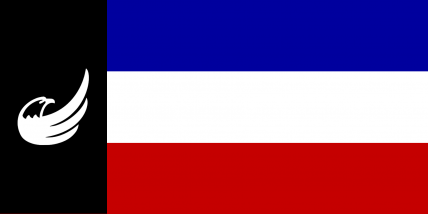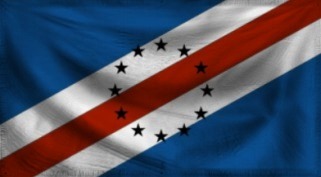
Advertisement

![]() by Cossack Khanate » Sat Jul 06, 2019 10:12 am
by Cossack Khanate » Sat Jul 06, 2019 10:12 am
The Holy Decreeist Empire of Cossack Khanate
We don’t use NS Stats, to do so would be ridiculous. You also can’t check my factbooks...because they are in Google Docs. Tee hee
Council of Free Market Economies ,ReArk Armaments (WIP)
A proud member of the regions Cornellia (IC) and Farkasfalka (OOC).
Proud Monarch of the ♔♚IMPERION COALITION♚♔
Me in not so much of nutshell: The Nutshell

![]() by Plaetopia » Mon Jul 08, 2019 5:47 am
by Plaetopia » Mon Jul 08, 2019 5:47 am
Cossack Khanate wrote:ELECTIONS
How was the head of state and the head of government (or other chief national authority) selected? Monarchy, hereditary
How is the national legislature selected? Non-partisan elections
Are elections considered free and fair? Yes, the no-party system is heavily enforced by the Cossack Election Commission. Since the legislative body doesn’t have much power, corruption to get into office is quite low.
Which was the average turnout in recent elections? Is voting mandatory? 64% voter turnout in 2015
SEPARATION OF POWERS AND FUNCTIONING OF GOVERNMENT
In case national representatives were freely elected, are they able to successfully develop and implement new policies? Does government authority extend over the full national territory? They are allowed to develop new policies, but it can be struck down by an absolute veto from the King.
Does the legislature have the legislative initiative? What restrictions are placed on its ability to pass laws, including constitutional amendments? All laws must have the signature of the King, the King can absolute veto the law, meaning the law cannot ever be passed. Constitutional amendments can be done through an 80% majority AND the King’s signature (of course the King could simply make the amendment, the Senate would need a unanimous vote to strike down an executive constitutional amendment).
Is the executive able to subvert the legislature through legal or extralegal means (such as arbitrary dissolutions, lack of an adequate budget, or strong limits on legislature's powers)? The King has absolute power over what laws get passed or not passed, the legislative budget, and restricting or expanding its powers.
From 1-10, how pervasive is corruption? (Small explanation appreciated) With 1 being least corrupt, 10 being the most, the Khanate would have a corruption of 2. Corruption of government officials is punishable by death, and the average salary is high enough to be comfortable.
From 1-10, how transparent is government activity? (Small explanation appreciated) With 1 being fully transparent, and 10 being not at all, the Khanate lies at a 4. It covers up military transactions and maintains “reasonable privacy”, but makes an effort to be transparent in other affairs. Not to say that every official does this, though...
Is there an independent judiciary? Yes
CIVIL LIBERTIES
Is there an independent media? Yes
Is there freedom of religion? Not really, while the Khanate is predominantly Hindu, freedom of religion is restricted to certain parts of the country (the north, where there are separate settlements of Cossack christians) and places where foreigners live.
Is education free of political interference or indoctrination? No, there is an emphasis within government circles to maintain nationalist and Hindu agendas within education
Are citizens able to express dissent in practice, without fearing retribution? To an extent. Protesting some actions will lead to reconsideration, protesting others will lead to quick police action
Is there freedom of assembly? Are peaceful protests allowed, and are they able to proceed in practice? Peaceful protests are allowed for some causes and not others. They tend to be heavily monitored, but are allowed to go ahead. You must inform the local government beforehand, however.
Are there basic guarantees of due process, and are they upheld in practice? There is a due process of law, but this is sometimes infringed on by a case-by-case basis.
Do individuals enjoy freedom of movement inside the country and of international travel, including in education, residence or employment? Yes
Do individuals enjoy basic social freedoms (do they have control over appearance? are they able to freely choose marriage partners and size of family? how common is domestic violence?)? Appearance is restricted by some laws, marriage partners is restricted to heterosexual couples, and there is no limit on family size.
Are individuals able to freely set up their own business? Are property rights adequately protected? Property rights and business rights are heavily protected.
PARTICIPATION AND GUARANTEES OF EQUALITY
How is citizenship determined? By blood, difficult naturalization process.
Who is able to vote in elections? Both males and females above the age of 20, within some requirements.
Are different segments of the population (men, women, the LGBT community, ethnic minorities...) treated equally? No. Men are informally given preference in some markets, women in others (part of the neo-traditionalist rationale). The LGBT community is heavily oppressed (The Khanate earned a score of “0” on the LGBTQ+ Rights Survey), and ethnic minorities are regarded with suspicion unless they come from allied countries.
Are the above groups well represented in government?
Men and women are both represented in government.
OPTIONAL ADDITIONAL QUESTIONS
Are the government or nonstate groups deliberately and systematically changing the demographics of the country so as to dilute or eliminate a particular group? The government, especially in the north, has histically redrawn town borders to separate Christins from Hindus, and nonstate actors on both sides (militias) have fought to keep it this way.
Any suggestions for future editions of the index? Perhaps an addition in regards to military influence on society and government.
Any suggestions for future editions of the index? Perhaps an addition in regards to military influence on society and government.
Plaetopia Post: Plaetopian economy slowly recovering | A new law passed by the Federal Assembly explicitly recognizes persecution because of sexual orientation as a valid reason for asylum in Plaetopia
![]() by The Huterric Union » Mon Jul 08, 2019 10:31 am
by The Huterric Union » Mon Jul 08, 2019 10:31 am
About the Fatherland|Incumbent President: Loreta M. Martin

![]() by Etrurica » Mon Jul 08, 2019 11:26 am
by Etrurica » Mon Jul 08, 2019 11:26 am

![]() by Plaetopia » Mon Jul 08, 2019 1:34 pm
by Plaetopia » Mon Jul 08, 2019 1:34 pm
The Huterric Union wrote:Is the executive able to subvert the legislature through legal or extralegal means (such as arbitrary dissolutions, lack of an adequate budget, or strong limits on legislature's powers)?
Plaetopia Post: Plaetopian economy slowly recovering | A new law passed by the Federal Assembly explicitly recognizes persecution because of sexual orientation as a valid reason for asylum in Plaetopia
![]() by Arthropol » Mon Jul 08, 2019 5:55 pm
by Arthropol » Mon Jul 08, 2019 5:55 pm

![]() by Libertas Omnium Maximus » Mon Jul 08, 2019 6:05 pm
by Libertas Omnium Maximus » Mon Jul 08, 2019 6:05 pm

![]() by Pacomia » Mon Jul 08, 2019 6:26 pm
by Pacomia » Mon Jul 08, 2019 6:26 pm

![]() by Plaetopia » Tue Jul 09, 2019 1:28 am
by Plaetopia » Tue Jul 09, 2019 1:28 am
Pacomia wrote:How are scores tabulated? What formula is used to get a rating for a country?
Plaetopia Post: Plaetopian economy slowly recovering | A new law passed by the Federal Assembly explicitly recognizes persecution because of sexual orientation as a valid reason for asylum in Plaetopia
![]() by Nogodia » Tue Jul 09, 2019 5:29 am
by Nogodia » Tue Jul 09, 2019 5:29 am
Vaukiai wrote:I am sure that if I say everything the opposite, you don't warn me.
This forum is a jewish dictatorship.

![]() by Camarder » Tue Jul 09, 2019 4:10 pm
by Camarder » Tue Jul 09, 2019 4:10 pm

![]() by Pacomia » Tue Jul 09, 2019 6:57 pm
by Pacomia » Tue Jul 09, 2019 6:57 pm

![]() by New Transeurasia » Tue Jul 09, 2019 7:11 pm
by New Transeurasia » Tue Jul 09, 2019 7:11 pm
ENN 欧亜囯家通訊社 Eurasian National News: S7 Airlines flight 661 makes emergency landing in Miiriney, RU after failed hijacking | CTVN 长春広播电視集団 Chángchūn Television Network: President Kuzma makes speech on plans for her 2nd term after re-election

![]() by Azlaake » Tue Jul 09, 2019 7:30 pm
by Azlaake » Tue Jul 09, 2019 7:30 pm

![]() by Dagnia » Tue Jul 09, 2019 8:34 pm
by Dagnia » Tue Jul 09, 2019 8:34 pm

![]() by Jeoloba » Tue Jul 09, 2019 9:03 pm
by Jeoloba » Tue Jul 09, 2019 9:03 pm

![]() by Plaetopia » Wed Jul 10, 2019 3:49 am
by Plaetopia » Wed Jul 10, 2019 3:49 am
Nogodia wrote:Any suggestions for future editions of the index?
Things like education and the economy being included might make it fairer.
Jeoloba wrote:Any suggestions for future editions of the index? Add the the question is hate speech a crime
Plaetopia Post: Plaetopian economy slowly recovering | A new law passed by the Federal Assembly explicitly recognizes persecution because of sexual orientation as a valid reason for asylum in Plaetopia
![]() by Eurasian Socialist Soviet Republics » Wed Jul 10, 2019 3:09 pm
by Eurasian Socialist Soviet Republics » Wed Jul 10, 2019 3:09 pm

![]() by Sovreign Military Order of St Peter » Thu Jul 11, 2019 12:57 pm
by Sovreign Military Order of St Peter » Thu Jul 11, 2019 12:57 pm

![]() by Urban Communes » Fri Jul 12, 2019 2:39 am
by Urban Communes » Fri Jul 12, 2019 2:39 am

![]() by Shamsiyya » Fri Jul 12, 2019 10:04 am
by Shamsiyya » Fri Jul 12, 2019 10:04 am

![]() by Plaetopia » Fri Jul 12, 2019 10:50 am
by Plaetopia » Fri Jul 12, 2019 10:50 am
Plaetopia Post: Plaetopian economy slowly recovering | A new law passed by the Federal Assembly explicitly recognizes persecution because of sexual orientation as a valid reason for asylum in Plaetopia
![]() by Urban Communes » Fri Jul 12, 2019 2:21 pm
by Urban Communes » Fri Jul 12, 2019 2:21 pm

![]() by Radiatia » Fri Jul 12, 2019 10:54 pm
by Radiatia » Fri Jul 12, 2019 10:54 pm

![]() by Pere Housh Alpha » Fri Jul 12, 2019 11:06 pm
by Pere Housh Alpha » Fri Jul 12, 2019 11:06 pm
Advertisement
Return to Factbooks and National Information
Users browsing this forum: Marquesan
Advertisement